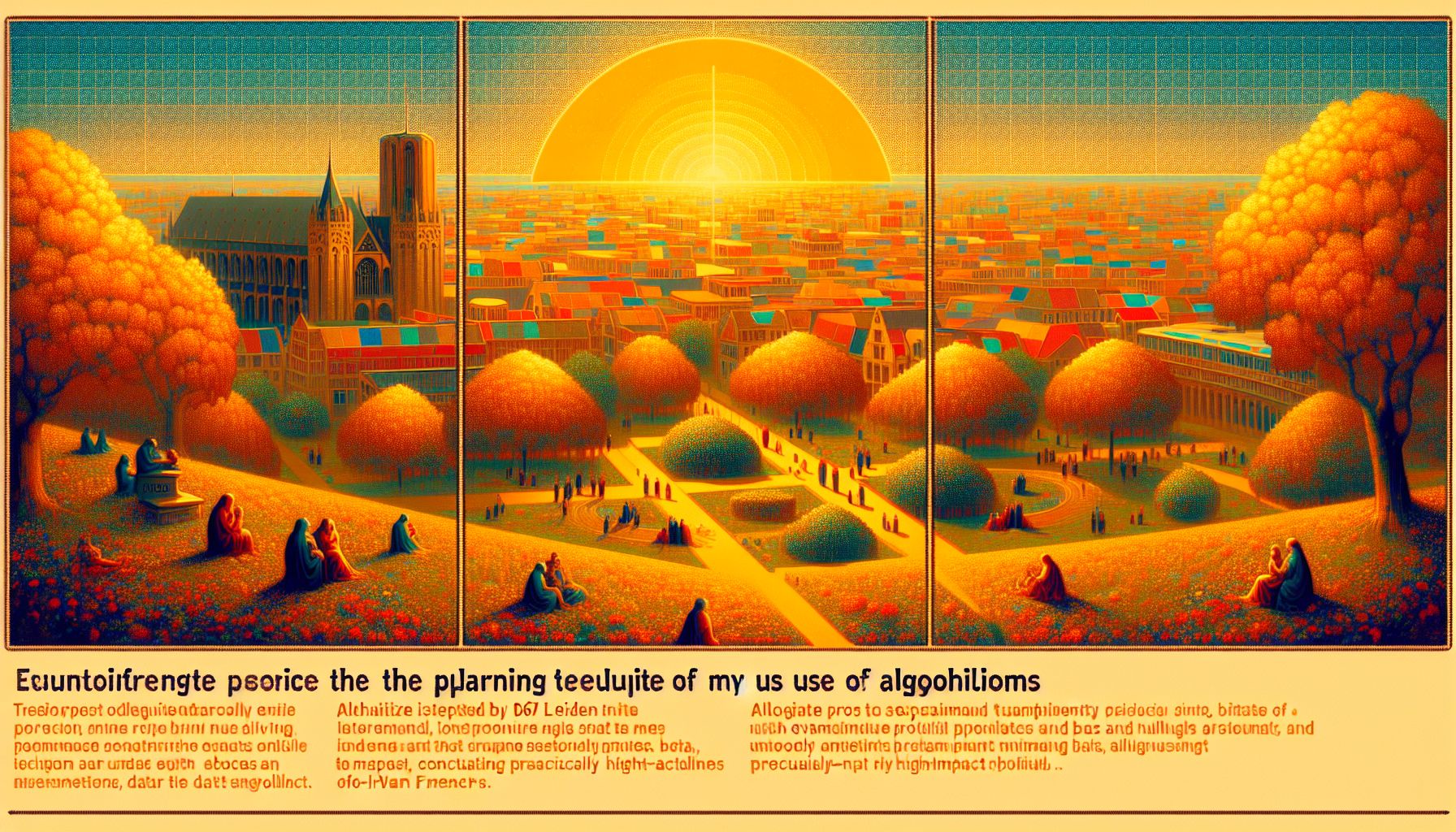Leiden to Assess Algorithm Use Amid Transparency Concerns

Leiden, Monday, 22 July 2024.
The Municipality of Leiden plans to evaluate its use of algorithms, particularly those impacting residents’ daily lives. This initiative, prompted by D66 Leiden, aims to enhance transparency and prevent potential risks such as discrimination and unlawful data use. The assessment is scheduled to begin in autumn 2025, focusing on high-impact algorithms.
The Push for Transparency
D66 Leiden, a political party in the municipality, has been a vocal advocate for the transparent and responsible use of technology by the government. Armin Zukanovic, a council member of D66, emphasized the importance of an algorithm register to ensure that automated decisions affecting residents are visible and scrutinized. ‘Decisions increasingly made by algorithms can fundamentally impact lives. The consequences of the childcare benefits scandal are a well-known example,’ Zukanovic stated[1].
Algorithm Register Initiative
The proposed algorithm register will catalog the algorithms used in various governmental processes, such as subsidy allocations, welfare refusals, fraud investigations, and fines. This register aims to provide transparency and allow residents to understand how these decisions are made. By making this information public, the municipality hopes to mitigate risks associated with algorithmic decision-making, including discrimination and unlawful data use[1].
Broader Context and Legislative Backdrop
The move by Leiden aligns with broader national and international efforts to regulate algorithmic transparency. The Algorithmic Accountability Act of 2023 in the United States, for instance, mandates impact assessments for automated decision systems to ensure they do not harm consumers[2]. Such measures reflect a growing recognition of the need for oversight in the deployment of AI and algorithmic systems.
Benefits and Risks of Algorithmic Decision-Making
Algorithms offer numerous benefits, including increased efficiency and the ability to handle large volumes of data swiftly. However, they also carry significant risks. The Autoriteit Persoonsgegevens, the Dutch Data Protection Authority, has warned about the dangers of improper, discriminatory, and ill-considered algorithms in recent warnings[1]. These risks necessitate robust frameworks for transparency and accountability.
Next Steps for Leiden
Leiden’s initiative will begin with an inventory of the algorithms currently in use, with a focus on those with the most significant impact on residents’ lives. This process is expected to start in the autumn of 2025. By prioritizing high-impact algorithms, the municipality aims to address the most pressing concerns first. The ultimate goal is to foster trust between the government and its citizens by ensuring that technological tools are used responsibly and transparently[1].

